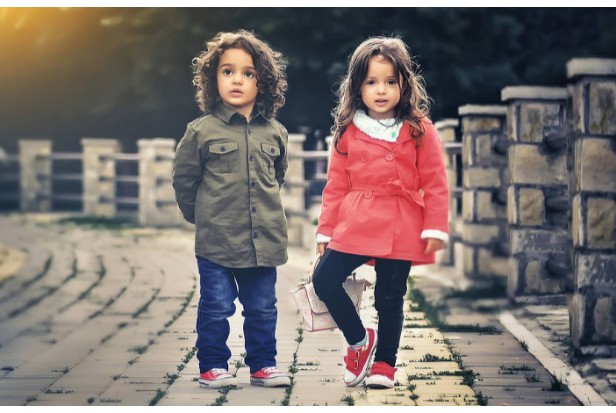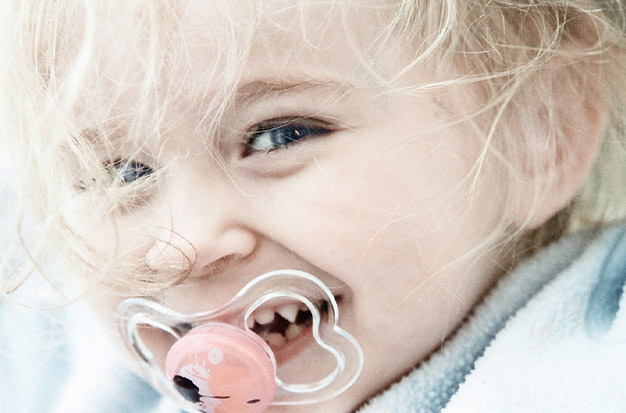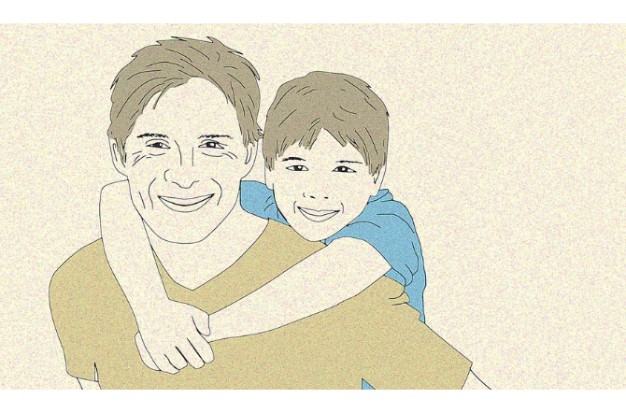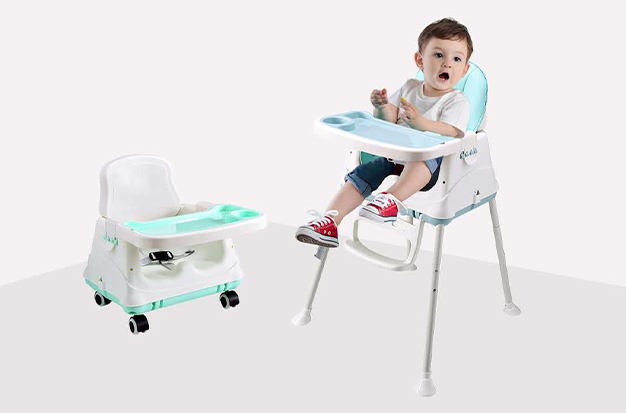Although we can’t shield our children from embarrassment, with the help of this manual, we can help them develop the fortitude and self-assurance they need to handle it in a healthy manner.
For the majority of adults, minor embarrassments are just a part of life; they are annoying, but they are also unavoidable and rarely cause much of a fuss. However, for many children, embarrassing situations can be extremely upsetting and, in some cases, may even result in more severe problems like anxiety and avoidance.
What is Embarrassment?
Humans establish standards of behavior and follow them. However, when we deviate from established norms and draw attention from others, it causes us to feel uncomfortable and increases our risk of receiving a poor evaluation. Embarrassment is the term used to describe this emotion.
By the time they reach toddlerhood, children start to feel self-conscious or awkward in particular situations. Children may blush, perspire, or stammer as a result of their feelings and actions that are embarrassing.
When is a Child Most Likely to Feel Embarrassed?
When your child is learning how to get along with others and behave properly in public during the preschool years, it might take place. When your child is school-aged, he will be more likely to feel embarrassed in situations involving peers and other kids. But over time, especially if you model it for him, your child will learn how to deal with embarrassment in a responsible manner.
Model Behavior
When it comes to managing challenging emotions like embarrassment, children look to their parents for guidance. “As parents we set the behavioral tone for our kids,” says Rachel Busman, PsyD, a clinical psychologist, “Therefore, the first step in teaching kids healthy emotional habits is to think about how we handle situations of a similar nature in our own lives.”
You can set an example of appropriate behavior for your child by examining how you handle embarrassing situations at home.
- Don’t obsess: If you tend to dwell on mistakes you’ve made (“Unbelievable, what I did there!” “Embarrassment might have killed me!”), it’s more likely your child will do the same.
- Stay calm: You’re teaching your child that it’s a big deal if you lose your cool or react angrily or upsetly when something embarrassing occurs to you.
- No teasing: There are many hilarious things that children inadvertently say and do, but it’s important to avoid making fun of them or their embarrassing mishaps. Children may begin to associate even minor mistakes with feelings of shame and humiliation if minor embarrassments are treated with ridicule. Teasing can be extremely upsetting for children, even if it seems gentle, especially if they are already feeling sensitive.
Take Your Child’s Embarrassment Seriously
For embarrassment, there is no standard. Giving the incorrect answer in class, for example, may seem insignificant to you, but your child may perceive it as a huge deal.
Even if the event that caused his feelings seems insignificant, it’s important to respect your child’s feelings if he is embarrassed.
“We naturally want to downplay embarrassing experiences by saying things like ‘it’s not as bad as you think,'” says Dr. Busman. “However, when children are going through these intense, extremely upsetting emotions, it can feel dismissive.”
But Don’t Overreact
When your child is upset, he doesn’t need you to become upset or angry on his behalf. (“That sounds awful!” “Those young people ought to feel bad for laughing!”) And don’t assume that he needs or wants you to take action. A self-conscious child is likely to be reluctant to express his feelings when he fears that a parent will overreact or make an embarrassing situation worse.
“When a child is hurting, as parents we want to do all we can,” says Dr. Busman, “but if your kid is feeling embarrassed, heaping more attention on the situation can make it worse, not better.”
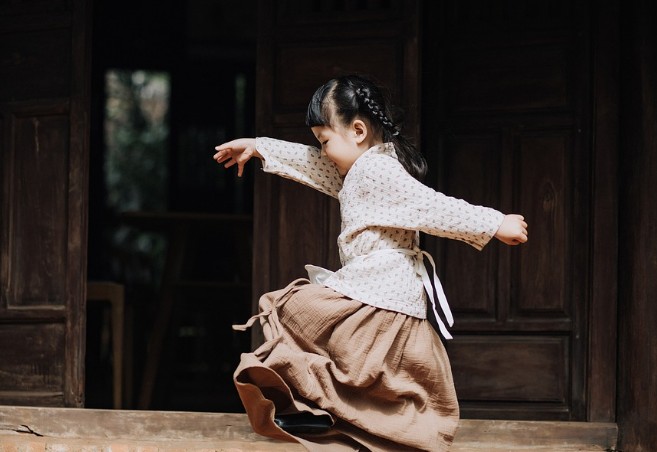
Praise Positive Skills
When your child confides in you about an embarrassing event, be sure to acknowledge her feelings while avoiding comforting her excessively. Praise effective coping techniques instead. Praise her for maintaining focus and finishing the piece even if she made a mistake during a piano recital. Reframing negative experiences will help your child identify healthy reactions and practice them, building what we call metacognitive skills. You could say: “I’m truly sorry that occurred today. I am so proud of how you handled it, even though I know it was distressing. It takes a lot of courage to continue playing when things are challenging.”
Create Perspective
If your child fell in gym class and other kids laughed, it may seem to him as though everyone saw, everyone laughed and no one will ever forget it — ever.
Of course you know that’s not true, but young children, in particular, frequently struggle to look beyond their own emotions, which can make embarrassing circumstances seem like breaking news. “Kids can be egocentric,” explains Dr. Busman, “so when something embarrassing happens to your child it can feel like everyone is thinking about it as much as he is, when in reality most kids will have moved on by the next day.”
Your child will gain perspective and develop resilience if he learns to contextualize his thoughts and experiences.
- Unpack: Asking open-ended questions will assist your child in developing a metacognitive approach to his feelings. For instance, since your child isn’t the only one who has ever tripped over in gym class, you might start by getting his reaction to other children who experienced the same thing. Your child might start to view embarrassing situations more positively if he learns to contextualize his own experiences.
- Share: Giving personal examples will help to normalize embarrassment. “The other day I dropped my bag at the grocery store. It practically burst all over the ground. Everyone laughed, but a few people then assisted in cleaning up.”
- But don’t compare: Giving an alternative viewpoint is beneficial, but be careful not to contrast your experiences with those of your child. (“You think that’s bad, when your brother was your age…”) Your child might come to believe that his experiences weren’t significant enough to warrant his level of distress, which can make him feel worse about his lack of grit.
- Let your child take the lead: When your child simply doesn’t want to talk about something, it may be helpful to refrain from asking questions. “Letting kids take the lead is important,” says Dr. Busman. “Don’t press your child if they say, “I don’t want to talk about it,” or if they appear upset.” Children occasionally just need a quiet place to calm down when they are feeling embarrassed, which is a powerful emotion.
It will be simpler for your child to move past difficult experiences if you can help him gain perspective without downplaying his feelings. You’ll also be giving him a crucial tool for future self-awareness development.
When to Step In
Everyone experiences embarrassing situations every now and then, but if your child consistently complains about going to school or exhibits a significant shift in mood or behavior, there may be a more serious issue at hand.
- Bullying: Kids aren’t always nice, which is a shame. In their lifetimes, most kids will experience being made fun of. Even though they are unpleasant, sporadic embarrassing situations are common. However, if your child frequently complains of being teased or humiliated by his peers, particularly children who are bigger, older, or more “popular,” there is a chance he is being bullied and it is time to intervene.
- Behavioral changes: After an embarrassing event, it’s normal to feel a little depressed or anxious, but persistent behavioral changes—such as lack of sleep, a poor appetite, or excessive worrying—are not.
- Overreacting or obsessing: If your child is acting in an embarrassing way that doesn’t seem appropriate for the circumstance or if he doesn’t seem to be able to get over it.
- Avoidance: For a short while, most kids who have experienced something embarrassing are reluctant to go back to the class or social group where the issue occurred, but persistent avoidance is cause for concern. Making excuses to avoid seeing friends, skipping class, skipping extracurricular activities, or refusing to attend school altogether are some warning signs to look out for. Other warning signs include being frequently too ill to go to school or asking to go to the nurse during a specific class.
Embarrassment and Social Anxiety
For some children, embarrassment anxiety can develop into a serious problem. A child may be suffering from social anxiety if she appears to be constantly afraid of looking foolish, even when there isn’t a good reason to be concerned.
Social anxiety usually occurs in children who’ve reachedadolescence, but it can develop earlier. Because she constantly worries about what other people will think of her, obsesses over how she appears to others, or is afraid of making a mistake, a child with social anxiety panics at the thought of engaging in day-to-day activities.
These phobias can be extremely crippling. Even routine interactions can feel like a minefield for children who see opportunities for embarrassment at every turn, and social, academic, and personal interactions frequently suffer. Children with social anxiety frequently withdraw, but they can also become aggressive when the fear of embarrassment gets the better of them.
The good news is that cognitive behavioral therapy is effective in treating social anxiety in children, and with support, they can resume their regular activities.
Life Lessons
The best way for your child to develop coping skills is through experience, along with some support. It’s only natural to want to shield your child from painful or upsetting events.
How Can I Tell If My Child is Feeling Embarrassed?
Even though it may not always be easy to tell, there are ways to recognize when a child is embarrassed. For example, if you ask your child what he feels when he’s embarrassed, and he says something like, “I feel ugly,” “I feel stupid,” or “Something’s wrong with me,” then you know that a feeling of embarrassment is present.
Here are some signs that can help indicate whether your child is feeling embarrassed:
- Unexpected shifts in facial expression or body language.
- acting withdrawn and quiet, almost as if the child is hypnotized.
- the child pulling on his ear or making a funny face out of self-consciousness about how they appear to others.
- exhibiting extreme emotion, perhaps to the point of yelling or sobbing uncontrollably out of shame.
- Changes in behavior that are immediately noticeable, such as a child becoming overly reliant on others for comfort or refusing to play with other children on their own.
- Saying things like “This is stupid,” “I knew I shouldn’t have done that,” or “It’s not fair.”
- inability to read social cues like voice and facial expressions.
- being excessively obedient, such as offering to carry others’ bags or assist with chores without realizing why they are doing it.
- a profound feeling of worthlessness or inferiority (especially if your child feels like an outsider).
- A child becomes upset when other people make fun of him or when he feels excluded from the group.
How to Help Your Child Handle Embarrassment at School
A child who is anxious about returning to school or adjusting to a new school setting may withdraw from social activities, feel self-conscious, change their diet, or have irregular sleeping or eating habits. He will also probably experience feelings of embarrassment quite frequently. To help your child overcome his feelings of embarrassment, it’s crucial to offer support and assist in the development of coping mechanisms. These advice will help your child deal with school humiliation.
1. Remind your child that they are not alone and that it is acceptable (and normal) for them to experience discomfort or embarrassment at school.
2. Tell your child that finding a friend and working through the situation with them are the best ways to deal with embarrassing situations at school.
3. If your child experiences bullying frequently, you might want to bring up the issue with the school. Let the staff at the school know how the taunting affects your child’s behavior or academic performance, and suggest that you two work together to foster respect in the classroom.
4. If your child experiences school embarrassment, suggest that they decide on a safe word with friends or other students. If they hear their “safe word” while in class, they know it’s time to step out of the classroom.
5. Your child will feel more at ease discussing what transpired with a teacher if they receive some support at school. In the future, if they feel embarrassed, they will also be more likely to ask their school for assistance.
6. So that you can comfort him in the future if he feels embarrassed, ask them to try to recall what it was like before they were teased about something embarrassing. That way, you can explain to them how it felt the first time and how it won’t happen again.
7. If the teacher needs visual proof of your child being bullied or teased, have a friend or other parent present it to the instructor.
How Can You Help Others Understand Your Child’s Feelings of Embarrassment?
Try to approach the situation with a positive outlook if you see your child being made fun of by someone or seeing them embarrassed by something. Please hold off on telling the person who made fun of your child to stop or reprimanding them.
It would be preferable to politely request that they refrain from making fun of your child and let them know that such behavior is unacceptable. If the circumstance is more complicated, such as when a bully is making fun of your child, you might need to step in and talk to the bully about the issue.
Try to explain it and show your child images of other people displaying the emotion if you notice your child displaying a feeling he or she does not understand. Your child will become more aware of themselves and more at ease with their emotions as a result.
Your child will benefit greatly from learning how to deal with embarrassment because of it. You can assist your child in developing greater self-assurance and security by assisting them in identifying their feelings and learning how to control them.
FAQs
When Someone Gets Embarrassed They
Personal embarrassment is usually accompanied by some combination of blushing, sweating, nervousness, stammering, and fidgeting. Particularly in etiquette situations, the embarrassed person may occasionally attempt to hide their embarrassment by grinning or laughing nervously.
How to Deal With Extreme Embarrassment
- If something isn’t too serious, make a joke about it. Laughing about what went wrong can make you feel better.
- Try to minimize or downplay what happened. This can occasionally prevent you from blushing or feeling overly stressed.
- Speak with a person you can trust.
- Acknowledge your wrongdoing.
